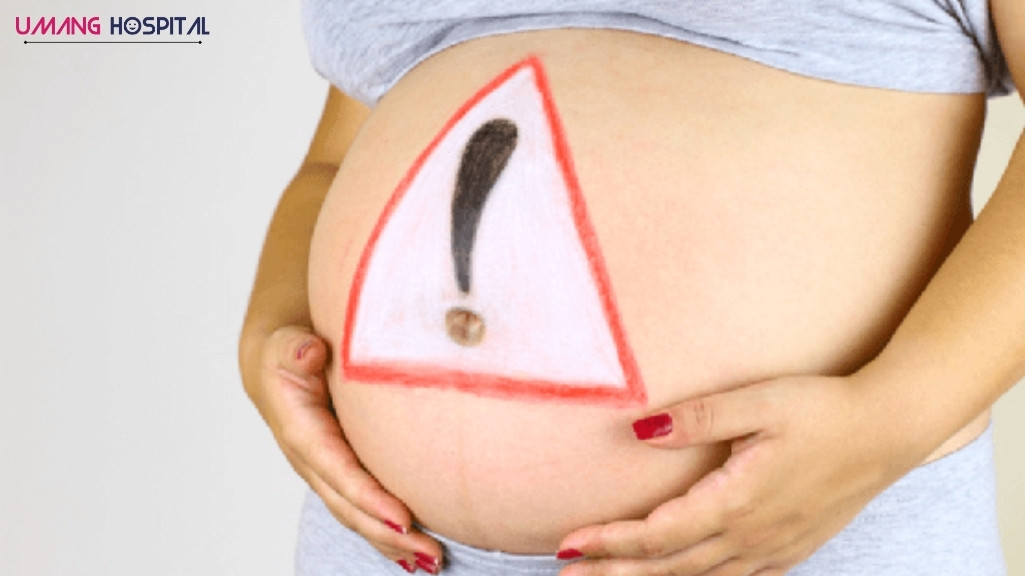
HIGH RISK PREGNANCY CENTRE
A high-risk pregnancy is one in which some medical conditions put the mother, the developing baby, or both at higher than normal risk for complications during or after the pregnancy and childbirth. About 12-15% of pregnancies are high-risk pregnancies. This can be due to various factors, including the mother's age, pre-existing health conditions, or complications arising during pregnancy. Close monitoring and specialized care are often required to manage the risks and ensure a healthy pregnancy outcome for both mother and baby.
Factors that can contribute to a high-risk pregnancy:
Maternal age: Women over 35 or under 17 are considered at higher risk.
Pre-existing medical conditions: chronic medical conditions like diabetes, high blood pressure, heart disease, kidney disease, autoimmune diseases, blood disorders, sickle cell disease and thyroid issues can cause pregnancy complications.
Multiple pregnancies: Carrying twins, triplets, or more increases the risk of pregnancy complications. The chances of multiple pregnancy has significantly increased due to fertility treatments.
Previous pregnancy complications: A history of preterm labor, premature rupture of membranes, ante partum hemorrhage, preeclampsia, or other complications can increase the risk of pregnancy complications in the present pregnancy.
Lifestyle factors: stress,smoking, alcohol or drug use, obesity, sedentary lifestyle, can negatively impact pregnancy.
Infections: Certain infections during pregnancy, especially dental caries, tonsillitis, blood infection , urine and vaginal infections can pose risks to both mother and baby.
Placenta issues: Placenta previa or other placenta-related complications can also lead to a high-risk pregnancy.
Genetic conditions: Family history of genetic diseases or birth defects can increase the risk.
Surgical history: A history of surgery on your uterus, including multiple C-sections, multiple abdominal surgeries or surgery for uterine tumours (fibroids), can increase pregnancy risks.
Pregnancy complications: Various complications that develop during pregnancy such as an abnormal presentation, fetal growth less than the 10th percentile for gestational age (fetal growth restriction) , oligomannions. polyhyramnios,high resistance flow in uterine arteries, pregnancy induced hypertension, gestational diabetes or Rh (rhesus) sensitisation can pose risks to the mother and the baby.
Impact of high-risk pregnancy:
For the mother:
Increased risk of complications like preeclampsia, gestational diabetes, preterm labor, and postpartum complications.
For the baby:
Increased risk of fetal hypoxia,infections, preterm birth, low birth weight, and stillbirth. The intrauterine infection or hypoxia can cause serious developmental issues and delayed milestones in the child in future.
Management and care:
Early and regular prenatal care:
Our expert team of doctors provide dedicated antenatal care and close monitoring of the parameters to diagnose the possible risk at the earliest.
Specialized care:
Depending on the specific risks, women are provided specialist consultations like maternal-fetal medicine doctors , intensivist, cardiologist, neurologist, gastroenterologist or any other needed specialist all under one roof.
Lifestyle modifications:
Quitting smoking, avoiding alcohol and drugs, maintaining a healthy weight, and managing any pre-existing conditions are important.
Consume a healthy diet: During pregnancy, a woman needs more folic acid, protein, calcium and iron. A daily prenatal vitamin can help fill in any gaps.
Medications and treatments:
Depending on the condition, medications or other treatments are given which are necessary to manage risks and complications.
Maternal ICU care- in case of any medical emergencies, the hospital has an advanced,fully equipped , state of art maternal ICU. Emergency management given by experienced obstetrician, skilled intensivist and emergency medicine consultants help in improved maternal outcomes. The hospital has zero maternal mortality rates despite being a high risk pregnancy centre.
Umang IVF and superspeciality hospital is a dedicated high risk pregnancy centre with dedicated team of expert doctors, elite infrastructure and state of the art equipment .It has a fully functional technologically advanced maternal ICU and neonatal ICU to take care of the mother and the newborn.
It is possible to have a healthy baby even in case of high-risk pregnancy. However, it is vital to seek expert guidance and supervision throughout such a pregnancy.